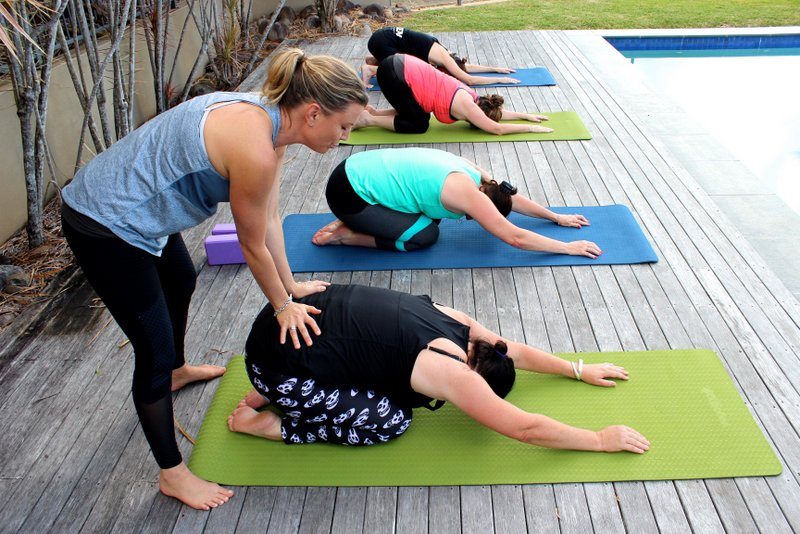
Self-care is any activity that we do deliberately to take care of our mental, emotional, and physical health. Although it’s a simple concept, in theory, it’s something we very often overlook. Good self-care is key to improved mood and reduced anxiety. It’s also key to a good relationship with yourself and others.
Self-care is something that refuels us – it doesn’t deplete us. It isn’t a selfish act either; it’s not only about considering our needs, but it’s also knowing what we need to do to take care of ourselves and subsequently, able to take care of others.
If I don’t take enough care of myself, I won’t be in the place to give to my loved ones either.

SIX SELF-CARE TIPS
#1. Movement.
Not only do many of us believe, that engaging in nurturing care of our own bodies, minds and spirits should fall behind the needs of everyone else, we also have come to associate “self-care” (thanks to misguided influences) with the drudgery and pain of strenuous, muscle-ripping exercise that we don’t want to do, and certainly feel we can’t sustain over the long arch of our lives.
Sitting is bad for our health let’s face it. Let’s change our mindset on what ‘exercise is’.
Everything counts as movement, a complete change in mindset is needed here. From vacuuming to walking the dog, to cleaning the cupboards to a 45-minute cardio or an hour yoga session. Whatever you do each day that moves your body in a consecutive timeframe – counts. So take note, write it down and add it up each week – perhaps try and beat it next week. Find new opportunities to move and add it to your count. Move with intent. Move mindfully.
#2. Chose to move in ways that feel good
Don’t move in ways that you think are good for you, but move in ways that feel good. Yes, exercise is good for better health, but it is not a sustainable motivator. Research shows, will-power depletes over time; its emotions, not logic, that motivate our daily decisions.
When you’ve lost motivation for a particular training session, close your eyes, imagine moving your body in a way that makes you feel good right at that moment. If it puts a smile on your face – then do it.
Feeling enjoyment in the action (as opposed to dread) will sustain your motivation for moving your body.
#3 Identify your self-care behaviours
And – recognize your self-care blocks.
I know if I start my day with any form of movement – dog walking, yoga, a strenuous workout, or, a dedicated meditation, my day is far more productive focused and energized. The days I scroll, sleep in, or make excuses – the day is all over the place.
What do you need to make sure you have enough mental, physical and emotional energy to get through your day?
Write down – Without ________, my day isn’t likely to go as well.
Then write down the strategies that will ensure it happens.
Some of mine are: to go to bed by 9.30 pm, to put my clothes out, and to set my alarm and keep it in the bathroom.
Ban yourself from inhibitors.
Create a list of actions or activities that will stop or slow you down from your self-care ritual, examples may include: not checking emails at night, not attending gatherings you don’t like, not answering your phone during lunch/dinner.
#4 Give yourself permission to make self-care a priority
It’s simple – if we don’t have the energy for ourselves we lose energy to give others. Consciously permit yourself to create some time in your day to enhance your sense of wellbeing (e.g. take a hot bath, meditate for five minutes, listen to music, take a walk).
Do it, then reflect on how you feel. This strategy can involve a leap of faith, especially if you struggle with low self-esteem or feel overwhelmed by responsibilities, but I hope you’ll try it.
#5 Actively plan and schedule in
Self-care needs to be something you actively plan, rather than something that just happens. It is an active choice and you must treat it as such. Add certain activities to your calendar, announce your plans to others to increase your commitment, and actively look for opportunities to practice self-care.
#6 Self-care daily
Do at least one pleasurable activity every day; from movement to taking a bath, to cooking or coffee with friends.
Include a non-brain ‘activation’ activity, by which I mean a meditative practice. For a few minutes, every day let your nervous system take a rest. As we live in ‘active and busy’ mode for most of the day our ‘fight or flight’ is constantly triggered, which puts stress on the entire nervous system. To reduce this stress, take time to stimulate the opposite part of the nervous system, the ‘rest and digest’ function. Listen to a guided meditation app, and come to my relaxation classes!

